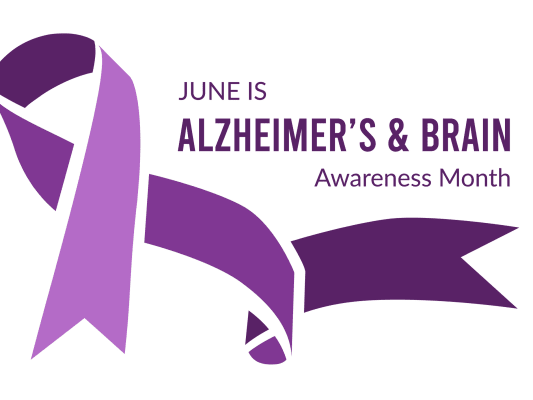Ways to Stay Sharp as You Age

As we age, our bodies change — and so can our cognitive abilities.
Older adults may forget names or misplace things. And while some of this is common as we age, these challenges can progress, resulting in more serious health problems.
Dementia is a general term for loss of memory, language, problem-solving and other cognitive abilities that are severe enough to interfere with daily life, and Alzheimer’s disease is the most common cause of dementia. This is when dementia symptoms gradually worsen over time, and it is not part of the normal aging process.
Throughout the world, 55 million people are living with Alzheimer’s and other dementias.
While aging is inevitable, Dr. Israel Cordero, medical director of Middlesex Health Primary Care, says there are some things you can do to help prevent cognitive decline.
Exercise your body.
Dr. Cordero often encourages his patients to build up to doing 150 minutes of moderate aerobic exercise per week.
“Make it an enjoyable activity or hobby that happens to make you sweat,” he says. “It could be hiking, cycling, a walk on the beach or dancing. Breaking a sweat is key to maximizing the health benefits that come from exercise.”
You should also lift some light weights or do some resistance exercises to help maintain your muscle mass and strength, which do decline with age.
Exercise helps prevent and treat depression, can help maintain joint mobility, decrease pain, reduce stress and anxiety and help to keep your weight down. “If I could bottle up exercise as a pill, it would be my number one prescription for virtually every disease — both as prevention and treatment,” Dr. Cordero says.
Exercise your mind.
Be a lifelong learner!
“I encourage my patients to pursue new hobbies that they’ve always wanted to do, such as learning a new language or playing a new instrument,” Dr. Cordero says.
He also recommends meditating and practicing mindfulness, and playing Lumosity, a brain training program that helps to sharpen aspects of short-term working memory.
The same routine can ultimately limit you because it reinforces existing neural connections. New activities, however, can help build new neural connections.
Be social.
Maintain your connections with family and friends.
Social isolation can hasten cognitive decline, impact your communication skills and can often lead to depression.
Eat well.
Be sure to eat healthy. Dr. Cordero recommends the Mediterranean diet, which is rich in vegetables, nuts, beans, olive oil, and other healthy ingredients. It is low in carbohydrates and red meat.
Sleep well.
Dr. Cordero says it is important to be well rested. Getting between seven and eight hours of sleep is best because research shows a correlation between ample sleep and the greatest life expectancy.
If you have difficulty sleeping, consider seeing a sleep specialist.
Maintain a healthy weight.
Dr. Cordero says your goal should be to have a body mass index of 20 to 25.
“At the end of the day, it’s all about caloric intake,” he says. “In order to moderate our weight, we need to consume less calories.”
Watch your numbers.
It’s important that you maintain normal blood pressure and blood sugars. When your blood pressure or blood sugars are high, they can impact brain health over time due to vascular repercussions.
Get care for your hearing and vision.
Get your hearing and vision checked regularly, especially if you experience problems. Hearing and vision loss can sometimes account for a person’s memory problem.
Avoid alcohol and smoking.
This is always good advice! Avoiding alcohol and smoking can help you live a healthier life overall.
Avoid taking supplements for memory impairment.
Don’t waste your money on nutritional or vitamin supplements to treat or prevent memory impairment. It’s better to maintain a healthy lifestyle and take your doctor’s advice.
“Do what you can now to help prevent cognitive decline,” Dr. Cordero says. “Staying active and healthy is important for so many things, including your cognitive functions. By practicing good health and wellness now, you will be better off in the future.”
Featured Provider

Israel Cordero, MD
Specialties / Areas of Care
- Primary Care
Locations
- Portland, CT
860-358-5040
- View Full Profile
- Existing Patients Only
Schedule an Appointment
Existing PatientsMore Stories
Healing One Tune at a Time
Middlesex Health Cancer Center offers free virtual music therapy sessions to individuals with cancer. Music therapy is the use of music or elements of music to help manage a range of conditions and improve your quality of life.
Spotlight: Men’s Health
When it comes to health care concerns that disproportionately impact men, such as heart disease and cancer, there is good news despite the grim statistics. With the help of a health care provider, many diseases are preventable.